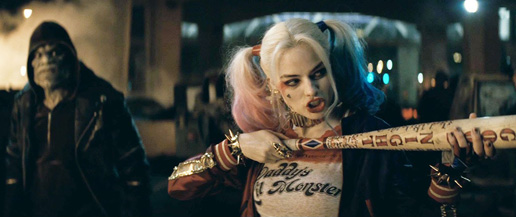|
|
Top Film Industry Stories of 2015 #8:
|

|
July means more to movie studios than simply the release of some of their most important films. They simultaneously must participate in the hype phase of future releases as well. As the heart of the summer boosts the box office of all films in release, studio execs cast an eye toward their seminal titles of future years. The designated location for this marketing campaign is San Diego, California, home to the most popular event on the fanboy calendar, Comic-Con International. New at BOP: Share & Save
![]() Tweet
Tweet
![]() Print this column
Print this column
Companies start to make preparations months in advance, and the evolving nature of communication allows rapid response times. Whereas exhibitors once waited until principal photography ended and a film was in the editing bay to cut a trailer, they now enjoy the ability to place a shiny gloss on dailies. These prints of work only recently filmed can become exciting teasers for upcoming projects. Movie producers can proudly enter a Comic-Con event and display footage that will build a frenzy of fan support. At least this is true in a perfect world.
In the real world in 2015, movie corporations once again learned that the internet is a double-edged sword. Several future blockbusters became a source of controversy when their upcoming Comic-Con trailers instead became infamous leaked footage. That’s the nature of the beast in a digital society. The instant someone downloads a file, other people have the ability to decrypt and copy it to use to their own benefit.
Most hackers simply post the footage on the internet, exchanging a bit of illegal behavior for the currency of brief online celebrity. It’s a strange behavior that has revealed just how slowly studios adapt to changing behaviors. As the entire world has honed their social media sharing skills, the people who bankroll and create films have lagged hopelessly behind. We touched on this a bit in last year’s Film Industry Story about the Sony hacks. 2015 wasn’t as devastating for Hollywood as a hole, but two different studios allowed the same blunder to occur on their watch.
In the days leading up the start of Comic-Con, Warner Bros. and 20th Century Fox planned their strategy for their major comic book titles. Suicide Squad, Deadpool, and X-Men: Apocalypse were all still in various stages of filming at the time. Given the popularity of characters such as Harley Quinn, Apocalypse, and Deadpool, the two studios wanted to kick each film’s hype machine into another gear. There was just one problem.
Today’s films don’t exist on celluloid. People don’t transport trailers around in giant canisters today. Instead, a simple USB device can store several full features. Forward-thinking internet users can store their entire digital life in the clouds. And everyone faces the same fear whether they’re a giant corporation or a single user. A hacker can take anything they want. In some situations, it doesn’t even need to be a hacker, simply someone with a phone.
In the case of Comic-Con, that was all the footage that Fox and Warner Bros. were desperately trying to keep under wraps. Studio strategists planned to reveal splashy new clips fresh from the set. It would be the best way to enable diehard fans to feel closely connected to the project. What they didn’t appreciate, what studios have stubbornly refused to accept to date, is that everyone at Comic-Con as well as those working on the film would have to honor the social contract.
Continued:
1
2
[ View columns by David Mumpower ] [ Email this column ]

|
|
|

|
Wednesday, April 30, 2025
© 2025 Box Office Prophets, a division of One Of Us, Inc.

